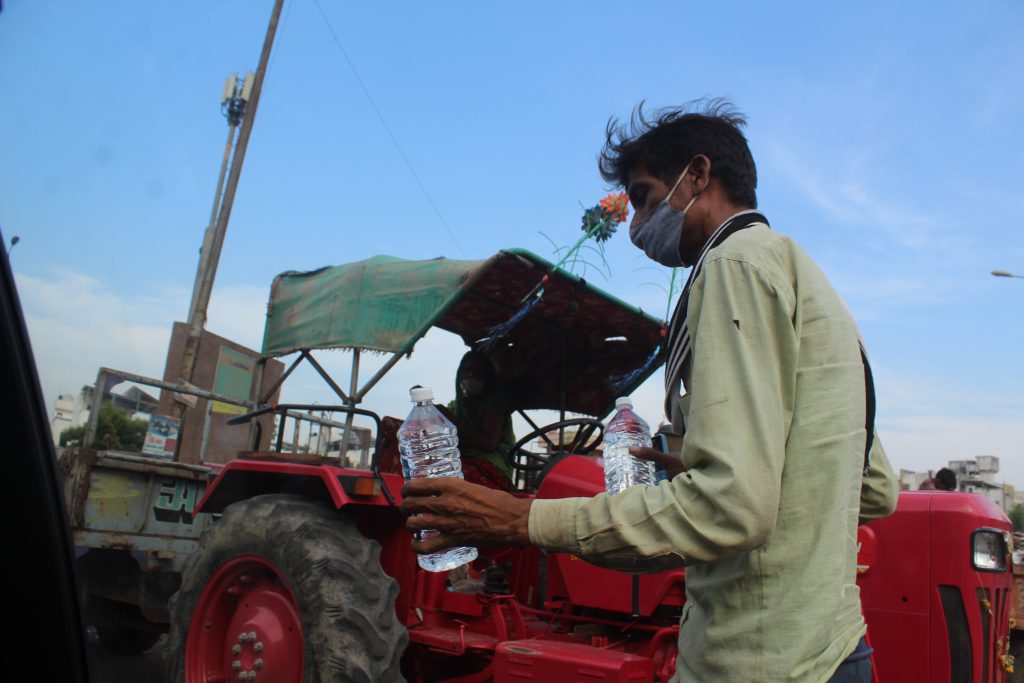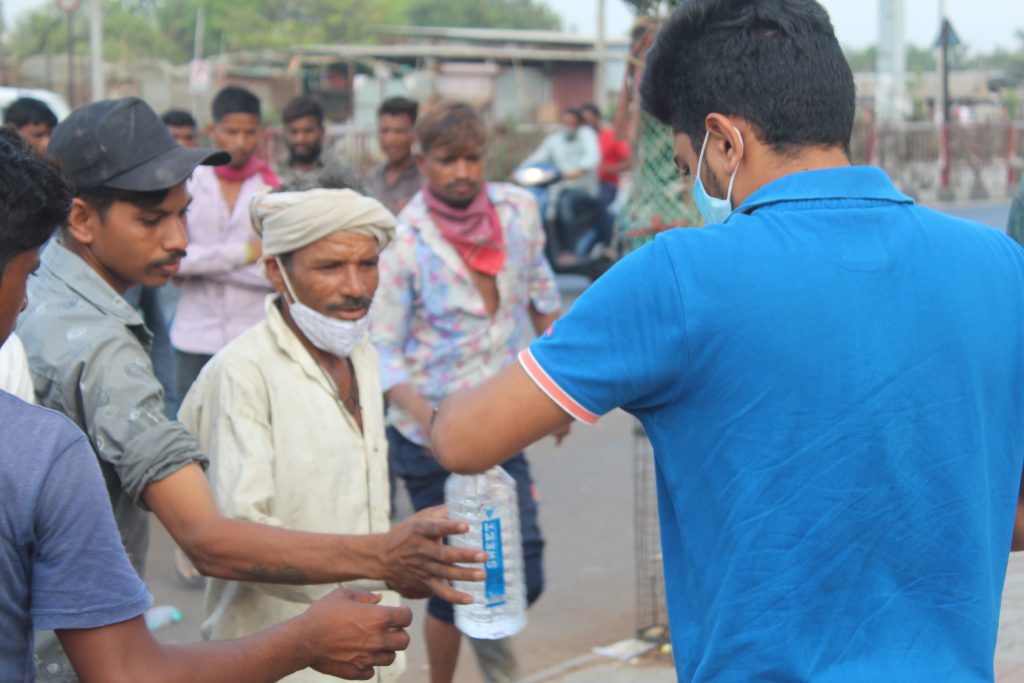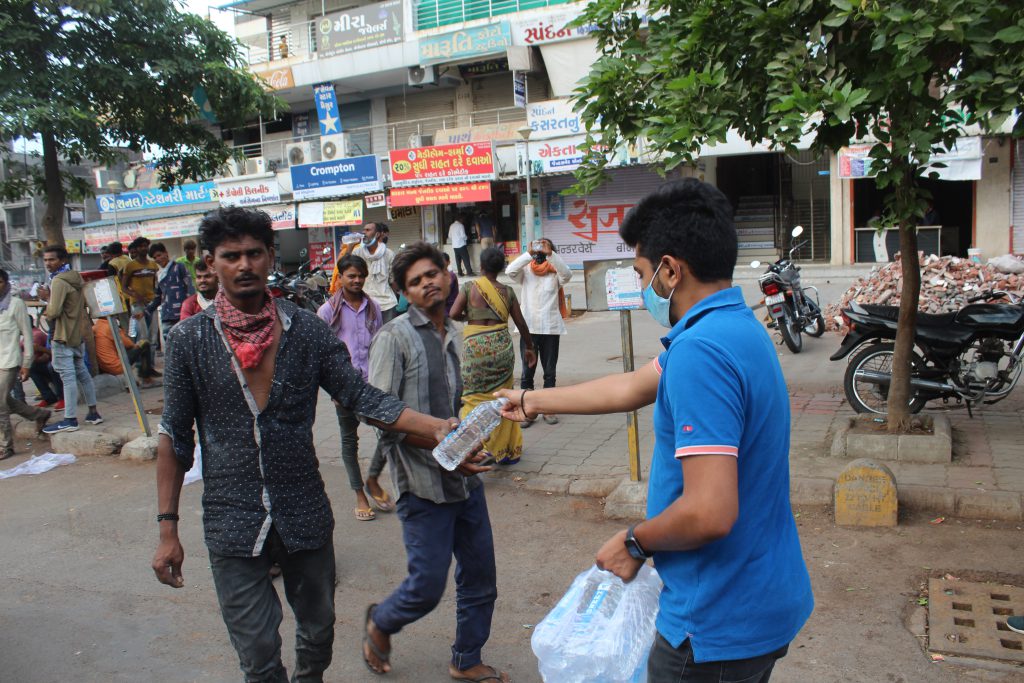Charity Cricket match
Cricket is known in every nook in India, from teens to adults, everyone enjoys the sport. Every Indian has played cricket at least once in their lifetime, and almost everyone has a passion for cricket, due to it being easy to play, and is more fun when you have a larger group. I personally have played cricket only once, and then never played it, but the feedback you get when you announce that you will be organizing a charity cricket match is astronomical. We thought of using this desire, to fuel our community work, which would be distributing bottles among the locals, even though it might sound a plausible solution, we hinged on the probability of someone else being inspired by our actions and following in our footsteps, to reduce the number of people who do not have access to water.
LO 1: Identify your own strengths and develop areas for growth.
I hardly garnered interest in cricket, and hence was not familiar with how to organize a cricket match, but my peers had, and we divided our tasks based upon our area of expertise, I chose to make the posters and invite people, as I was not familiar on how to adequately plan for a charity cricket match, and would not be able to contribute much.
I tried to make the poster as appealing as I could, and I also decided we should have low entry fees, as the incentive was very low for people to participate, due to getting nothing in advance, but only contributing to a local cause, which is often looked down upon. The poster when completed, was appealing and ready to be sent to possible applicants who would be willing to join in the charity cricket match.
LO 2: Demonstrate that challenges have been undertaken, developing new skills in the process.
The most challenging thing would be fixing the entry fees, as we did not want to set them too high or else no one would find it remotely find it just to play a cricket match even if it was for a cause, but setting it too low would prove to be difficult as we would not be able to cover the expenses of proving bottles of water to the locals, and would yield no satisfactory result.
The biggest concern was, even though the entry fees were accounted for in most circumstances, we were always afraid people might not participate due to the entry fees being higher than the actual reward they obtain, this proved quite difficult to completely resolve, which resulted in me developing critical thinking skills as one had to account for all types of reasons an applicant would not participate and try to fix it without affecting our main cause.
LO 3: Demonstrate how to initiate and plan a CAS Experiences
For this project, I did not really expect to choose a charity cricket match, as I was more in favor of hosting a volleyball match, but the response to a charity cricket match is much higher than a volleyball match, which is why we chose it, as it was easier to get applicants due to high amounts of interest and passion for cricket.
LO 4: Show commitment to and perseverance in CAS experiences
The biggest demotivating factor was the less number of participants, as it was always hard to motivate someone to pay fees in order to play a cricket match, to contribute to a cause. Most applicants only inquired about the reward, and when they did not get a satisfactory incentive to participate, they turned us down, and this made our collecting applicants time longer than what was predicted, leading to us shifting our planned process, this proved to be very difficult, as there was a huge difference between the expected applicants and the number of applicants that applied, causing us to think whether we could have done something else to improve our organization.
LO5: Demonstrate the skills and recognize the benefits of working collaboratively
Working collaboratively is definitely very helpful as you can divide the tasks between people, making the team more time-efficient, and radically reducing the time frame required for each process, as we had divided our work based on our area of expertise, it yielded better results than ones we had expected and helped us account for the delay in our time of applicants participation, or else we would have our process delayed by an entire month or so, due to the range of circumstances we had to face while organizing a charity cricket match.
LO6: Demonstrate engagement with issues of global significance
Global issues are often called global due to how common it is to encounter them, one of the most expected global issues was lack of water. It was a global issue that we had encountered in our local people, as people were not able to get access to clean water or even water in most cases. This made it a fitting cause for our CAS project, as we would contribute to a greater cause.
One thing that we had to accept was, we would not be able to bring much of a change to the locals due to our scale of operation being relatively less, and also due to it being a one-time thing, and not providing them regularly with clean drinking water. This made us think back on how we could cut costs and increase our scale of operation but it yielded no results, and we banked on the possibility of someone else being inspired by us, leading to more efforts being caused to eradicate the number of locals who have to live without being able to access clean drinking water.
LO7: Recognize and consider the ethics of choices and actions
Our biggest ethical dilemma would be the biased action of giving water bottles to locals based on their appearance, as appearance is not a sure way to differentiate between people who have access to clean drinking water and people that do not have it. We thought if there was a way to fix this flawed method of appraising people as poor locals, and giving them bottles, this was an ethical dilemma that proved to be very challenging to resolve, as it was hard to distinguish locals from other locals who had access to clean drinking water and were able to afford it, as we did not want to provide water to the ones who already had it, as it would not be fruitful and would stray us from the cause of our CAS project.
Evidence




